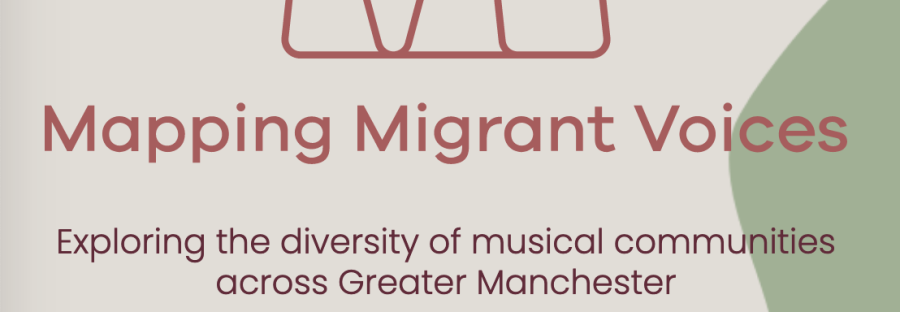Manchester ethnomusicology student launches first-ever study bringing together music and migration
• Ethnomusicology student Marion Smith teams up with award-winning Manchester charity Olympias Music Foundation to catalogue musical histories of migrants in Manchester
• Project aims to question the 'othering' of world music
• Concept of world music has been criticised for its 'ghettoisation' of most of the world's music
An ethnomusicologist from the University of Manchester has launched a study in an attempt to challenge the idea of ‘world music’.
Masters student Marion Smith teamed up with award-winning music charity Olympias Music Foundation to collect, catalogue and map the musical histories of migrant diaspora living in Manchester.
The project, titled Mapping Migrant Voices, is the first to bring together music and migration in Manchester.
Through informal interviews, Mapping Migrant Voices invites migrants to share their musical experiences, whether they are professional musicians, or just participate in music-making.

Mapping Migrant Voices aims to counter what Marion calls the ‘othering’ of world music.
“World music is really just a synonym for non-western or non-white music”, said Marion.
“Things are so homogenised. So we wanted to provide specific examples of music from a variety of places and people.”
The concept of ‘world music’ has long been controversial.
In 1999, Talking Heads frontman David Byrne wrote in an op-ed for the New York Times “It groups everything and anything that isn’t ”us” into ”them”. It’s a none too subtle way of reasserting the hegemony of Western pop culture. It ghettoises most of the world’s music. A bold and audacious move, White man!”
But in recent years, critics of the term have become more vocal.
In 2019, the Guardian called the term ‘flawed and outdated’, and advocated for its retirement.
They also renamed their world album of the month ‘global album of the month‘.
And that same year, the World of Music, Arts and Dance Festival, or WOMAD, the formerly, self-identified ‘world music festival’, decided to start calling itself simply ‘the world’s festival’.
While this is just a first step, Marion hopes that projects like Mapping Migrant Voices will help bring a better understanding of the plurality of music genres that coexist right on our doorstep.

“Lumping it all together is ridiculous”, said Smith.
“There are so many different ethnicities and music traditions in Manchester.
“We hope that this project will provide a safe and inviting space for these individuals to share their music and histories.”


